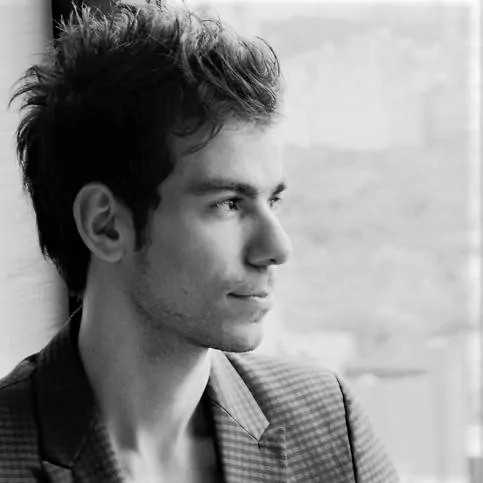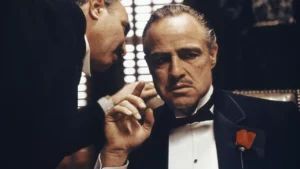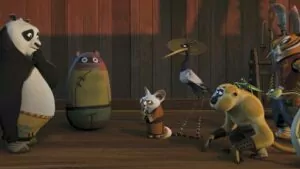
James Latimer is a British director who has been living and making films in Japan. He has made an array of short films and documentaries like The Lady Samurai, Butoh Dance and now Kata, which are based on real people who demonstrate their art through their inner feelings. We talked to James about making his latest short film, Kata, which premiered yesterday in Tribeca Film Festival. Check it out below!
Q. Hi, James. I am Hardik Agarwal from The Movie Culture. How are you doing today?
James Latimer: Very good. Very good. How are you?
Q. I’m fine. Thank you. So first of all, Kata is about Mahiro Takano and how she transforms every time she steps on the Dojo and starts practicing. So how did this idea actually come into existence?
James Latimer: So it was, late 2019, thinking about the 2020 Olympics and how Kata and Karate was going to be in the Olympics for the first time. And I felt, wow, this could be a really interesting time to help to introduce a new audience to Kata, we all know about Karate. We’ve all seen Karate Kid and things like that. But the the form of Kata, the inner journey of Kata, I don’t feel that there’s been many things about that. So I felt like this was a great opportunity to dive into that. And then I was going to choose an Olympic athlete originally as a subject, but then I found this 13 year old, six year in a row national champion. And I was like, Wow, she’s so special. We got to choose her.
Q. Yeah, so actually, I was coming to that question. So Mahiro is one of the most disciplined young Karate practitioners in Japan. So how did you actually meet and approach her about this project?
James Latimer: We just hit up her coach actually, in the dojo that she goes to in northern Japan, three hours north of Tokyo. We contacted her coach and everybody was just very supportive and open to the idea. Because she was really, a big name, she was in Sia’s music video ‘Alive’. And everyone knows her. But now that she’s, 12-13, she’s kind of just focused on her own training. And this was a great opportunity to be like, what’s the next step? Okay, we knew a 6 year old Mahiro, but now 13 year old Mahiro, where is she now?
Q. So obviously, your short films, they are based in Japan and I want to know more about how your fascination towards this vibrant, colorful and disciplined culture of Japan came into existence.
James Latimer: So pretty much like a lot of us grew up with, anime and video games. And I’m just another one of those really. So without even realizing it was just a lot of about Japanese storytelling, the aesthetics, the way that it kind of takes a lot of , inspiration from Western culture, mixes it up and finds their own way of presenting it back to us. Without even realizing, I didn’t know that was all Japanese growing up and as I grew up, I was like, wow 80% of those things are Japanese, I need to know more about this country. And then taking a trip to Japan, getting to know the people more, speaking the language. gradually I started to get deeper and even more fascinated with Japan.
Q. So I went ahead and watched Butoh dance and Lady Samurai too and both of those are about real people who are passionate about their particular artform. So what are the major tonality differences between say, Butoh dance and Kata according to you? Because I think they were vastly different. But I want to know your perspective about it.
James Latimer: Yeah. It really that rather than putting my own style first, it’s really trying to understand the art and the person that we’re trying to shoot. Because it’s a documentary, it’s really important to be authentic. And to come at it from a place of learning. Like, please tell me about yourself, please tell me about your art. With Butoh everything just seems so natural that it was going to be dark, very dark, but looking for some sort of light. So everything that he’s doing is navigating the world, looking for this small glimmer of light that he’s in search of. And with Kata it’s much more of like a spiritual meditative inner journey that she’s going through. So having that going through like a bamboo forest and having it very bright in the beginning, but then gradually, as we get deeper into her journey getting darker and darker, that just seemed like a more natural process.
Q. So when I saw Kata also, I noticed how the priest sort of gives a long look to Mahiro by the end. Could you tell me what that signified? Or did that even signify anything or I am just overthinking about it?
James Latimer: So I deliberately wanted to leave that a little bit open ended. So there can be several possibilities there. It’s like, Did he see everything? and, Who is this girl with all these skills? Is it that he just senses that something happened in that bamboo forest that he didn’t actually really see. But there’s some sort of magic that she’s kind of left behind. I kind of want to leave it to the viewer to make their own assumption on that.
Q. My theory was that Mahiro says in the beginning that Karate starts and ends on a bow. And she did not actually bow in the end. So I think that’s what made him look, but that was just my theory and what I was thinking.
James Latimer: Yeah, exactly. Yeah. It’s great. Because like, it opens up so much.
Q. So like, obviously, all of your different movies, whether it is Lady Samurai, or Kata, or Butoh Dance, it’s based on real people, who are performing those art forms. So, how do you choose the people you want to make film or a documentary on? What makes an idea stand out for you?
James Latimer: Yeah, that’s interesting. I think for me, it’s like seeing the potential in somebody who hasn’t necessarily fully communicated that to a broader audience, somebody that’s maybe on that cusp of fame, they’re not super famous, but they’re not unknown. People that have a core following, people that know what their passions and their talents really are. But they haven’t been able to find a bigger audience for that yet. And then it feels like my responsibility is finding that core talent, that core aesthetic or that core value that they have, and how can I communicate that and create the context for a larger audience to really appreciate who they are. And then so with these three, I saw that potential, they are on that line of blowing up and becoming super famous. And hopefully, this is a little nudge to get that recognition and appreciation that they deserve.
Q. So Japan is clearly such a bonanza of cultures and traditions. And I wanted to know what is your one biggest fascination with Japan, and it can be specific or generic, but what attracts you to Japan the most?
James Latimer: What attracts me to Japan the most? I would say it’s maybe sounds a bit standard, but it’s just the way people treat each other, like the respect. The subtlety, the reading the atmosphere, not wanting to upset anybody else by thinking first about what you’re going to do before you do something. It’s just such a harmony in Japan and such a consideration for the people around you and a consideration for everything around you. And when I’m in Japan, I feel like it’s making me a better person every day. I like feeling like I’m being a better person. And being in Japan is just everyday really inspiring to me.
Q. Yeah, exactly. Like now I feel like I need to visit Japan, like ASAP. And I’m actually reading Mangas a lot now. Since the demise of Kentaro Miura, I don’t know if you know him or not. But he was the creator of Berserk. And I started reading because of all the news and I am really getting fascinated with Japan and the culture a lot. So, obviously, after Kata, what’s next for you? And is it gonna be based in Japan? Or are you going to try something different this time?
James Latimer: I will probably continue this journey. I feel like going into feature length series, trying to get deeper with some of these characters. I feel like these six minutes, seven minute montages have been fantastic in a way in which you can’t take your eyes off for a second. But now it’s like to really bring cultures together because my goal was, because I’ve lived in Japan for 10 years now. And I feel like I’ve learned so much being there. But there’s so much misunderstanding ]about what Asian cultures are, what Japan is what the West is, and hopefully through something longer, they can be more of that bridge where you can kind of understand each other better.
Q. It’s about eliminating all those stereotypes that exist. I also wanted to know where Kata is actually going to premiere how do we see it when it comes to film festivals or in Vimeo or something like that?
James Latimer: I’m actually going to head to the screening at Tribeca an hour from now. And it’s actually going to be showing geolocked to the USA from tomorrow. And so anybody in the US can watch Kata as part of Tribeca’s at home festival program. And then we’re still looking at where else internationally, we can have Kata screened in different film festivals and things like that before then releasing it online.
Q. Thank you so much, James, for interacting with me, I saw Kata and it was such an atmospheric and inspiring experience. So I’m really looking forward to what you do next.
James Latimer: Thank you so much. I really appreciate it.
The Movie Culture Synopsis
You can experience Kata through the Tribeca at home festival program right now. It is about Mahiro Takano, a renowned, young Karate practitioner in Japan, who goes through her practice ritual and faces her greatest enemy.



